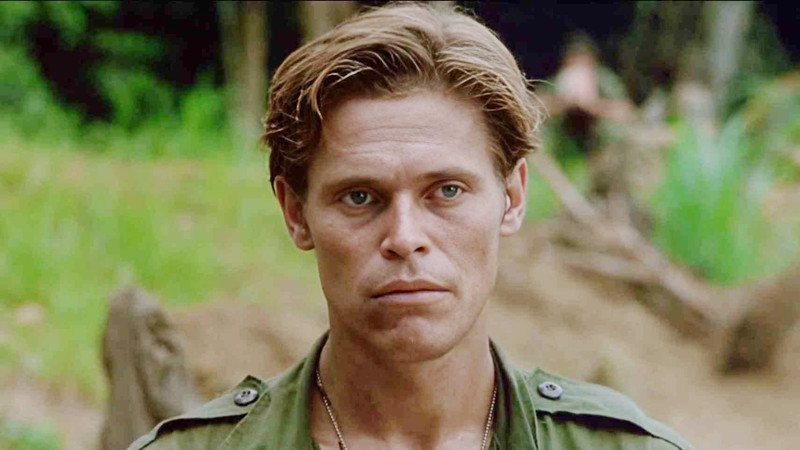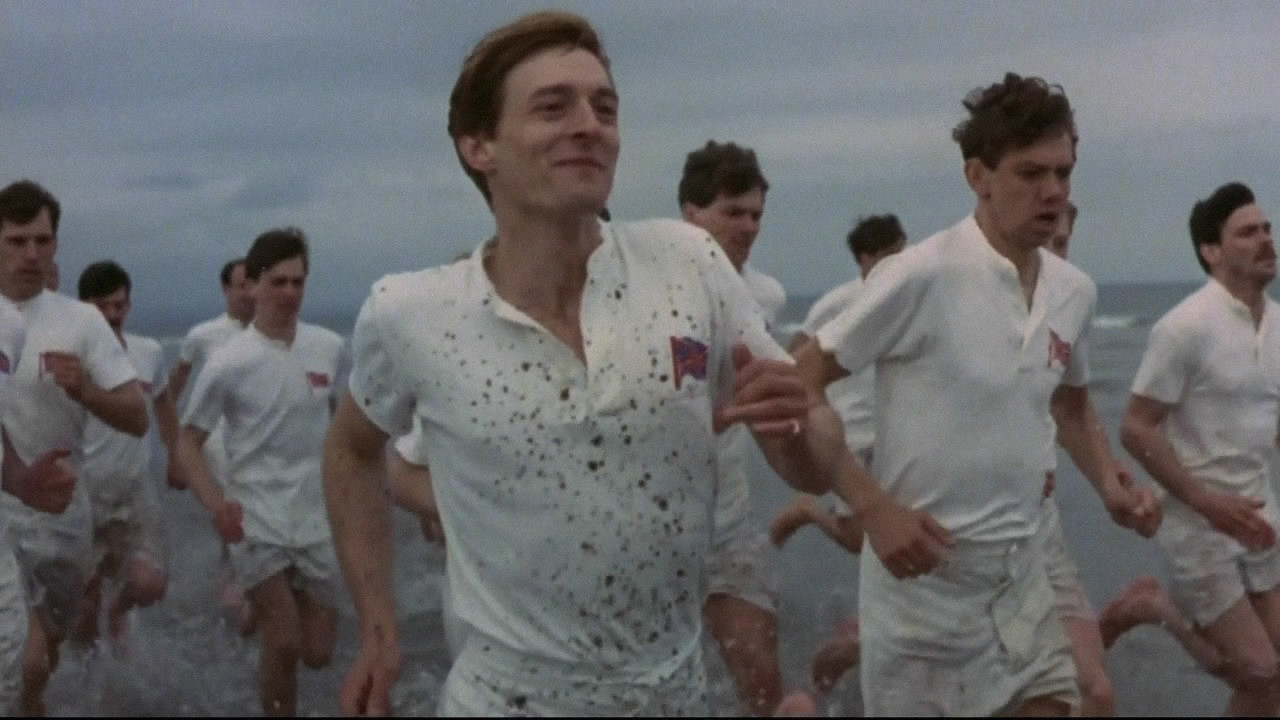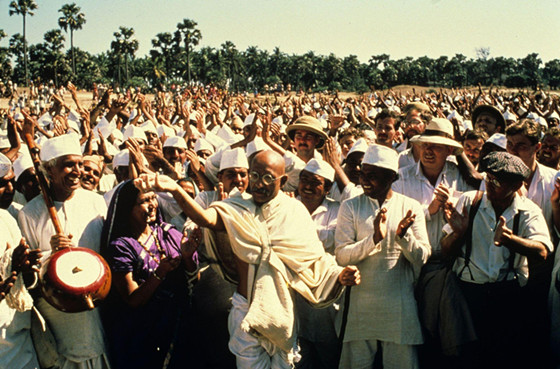
You either love ’em or hate ’em, but the Oscars are virtually impossible to ignore altogether. That remains as true today as it was back in the 1980s, a transformative decade for Hollywood that saw the movie industry pivot away from the high-risk, high-reward auteur-driven business model of the ’70s towards the current one with the rise of family-friendly blockbusters, serialized franchises, spin-offs, and remakes that completely took over at the box office as must-see theatrical events.
Meanwhile at the Oscars, ten lucky films throughout the decade cemented their place in movie history and enjoyed a sweet marketing boost after being deemed worthy of the Academy’s biggest distinction. Unfortunately, not every Best Picture recipient from 1980-1989 is looked on so favorably today — for every undisputed classic like “Amadeus” that only grows in esteem and stature with each passing year, there are at least a handful of head-scratching duds that have faded into obscurity or aged like milk in the following decades.
Nevertheless, the Oscars being the Oscars, we have set ourselves the arduous task of scanning through every Best Picture winner of the 1980s to rank them from worst to best. So how does “Platoon” stack up against “Gandhi”? Does one really have to choose between “The Last Emperor” and “Ordinary People”? Keep scrolling down to find out.
10. Driving Miss Daisy (1989)

Assuming the Academy sought to reward the most politically urgent film of the year that also happened to offer an insightful look at racism in America with their top honor in 1989, they had a shoo-in that checked all boxes and then some in Spike Lee’s “Do the Right Thing”. However, the iconoclast director had to settle for a Best Original Screenplay nod after being inexplicably iced out of a Best Picture race he deserved to win outright.
From a vantage point 35 years on, it’s still mind-boggling but pretty obvious now that a confrontational rabble-rouser like Spike’s magnum opus never really stood much of a chance of taking home the evening’s big prize over a broad and hokey crowd-pleaser like Bruce Beresford’s “Driving Miss Daisy” that bent over backwards to pander to the white demographic of Academy voters with an outrageously sanitized look at 1950s-era Old South through the lens of a bigoted 90-year-old Jewish lady and his Black chauffeur.
Solid turns by Morgan Freeman and Jessica Tandy (who won Best Actress Oscar for her part) make the film somewhat tolerable to sit through on first viewing but ultimately fail to elevate a self-congratulatory script that only dares to address racism and ageism in very superfluous and cursory terms beyond outdated Oscar-bait tropes. Up there with “Green Book” as one of the most baffling choices for Best Picture ever, and I don’t say that lightly.
9. Out of Africa (1985)

We likely have this swooningly romantic tale of doomed lovers based on Karen Blixen’s autobiographical novel to blame for setting the benchmark for the sort of sappy, bloated, and shameless Oscar-bait period romance that would become endemic in following editions (“The Prince of Tides”, “Shakespeare in Love”, “Titanic” and “The English Patient”, just to name a few) and seemed to be reverse-engineered to accumulate an impressive haul of awards over anything else.
The dynamic duo of Meryl Streep and Robert Redford bring high-wattage star power but little to no chemistry together in this Sydney Pollack-directed African travelog, which spans several decades and goes on for nearly three excruciating hours as a wealthy Danish baroness and coffee plantation owner tries to sort out her ambitions and, above all, her shifting romantic feelings for a big-time hunter she tumbled into while eking out a living in Nairobi.
No amount of sweeping open vistas of the beautiful African plains could possibly be enough to make this stodgy melodrama stick in the memory, though the fact that it did well with Academy voters is not entirely surprising given their penchant for old-fashioned tearjerkers. (For a Robert Redford-led Best Picture winner that actually holds up today, try George Roy Hill’s 1973s “The Sting.”)
8. Chariots of Fire (1981)

This stuffy inspirational sports drama about two scrappy British athletes, a Lithuanian Jew born in London and a Scottish Protestant born in China, overcoming insurmountable odds and triumphing over adversity and prejudice to compete in track and field at the 1924 Paris Olympics is perhaps best remembered today primarily for coming out on top of an unusually stacked Best Picture lineup that included “Raiders of the Lost Ark” and “Reds”. Well, that and a now-iconic, Oscar-winning score by Vangelis that’s been largely co-opted by pop culture and used in too many sporting broadcasts to count ever since.
On the one hand, Hugh Hudson’s “Chariots of Fire” is not an irredeemably bad stinker in the vein of the tenth-placed “Driving Miss Daisy” that simply leaves a bad taste in your mouth — it may be trite, mawkish, and earnest to a fault, alright, but also competently made, well-staged, and boasts serviceable performances across the board including an Oscar-nominated supporting turn by Ian Holm.
In an alternate world, it sure would’ve been nice for Steven Spielberg not to have to wait another decade to finally get over the Oscar hump, but even if you don’t care a lick about sports, the climactic beach race sequence at the end of this one is virtually guaranteed to give you the goosebumps.
7. Gandhi (1982)

American cinema was on a roll in 1982 — this was the year that saw “Blade Runner”, “The King of Comedy”, “The Thing”, “E.T. the Extra-Terrestrial”, “Tootsie”, and “The Verdict” all win the audiences’ hearts at the multiplex during a 12-month span for the ages. Though unanimously heralded as irrefutable classics today, none of the above titles managed to generate enough traction to speed past the finish line and go the distance in the preferential ballot when put alongside this sturdy, large-scale historical biopic directed by Richard Attenborough.
There were surely at least a handful of better options to give the big nod to that particular awards season, but 42 years on, “Gandhi” is still worth diving into if for no other reason than to revisit a superlative, star-making performance in Ben Kingsley, who found the role of a lifetime and won an Oscar for stepping into the shoes of the peace-loving spiritual Indian leader who famously led his countrymen into revolt against the British raj through his philosophy of nonviolent protest.
Epic in scale yet intimate in detail, this 191-minute-long epic follows the classic Hollywood-biopic playbook to a tee, scanning through every broad stroke and major historical event in Gandhi’s eventful life, from his early days practicing law in South Africa until his death at the age of 79, while conveniently sidestepping a lot of controversies and gnarly aspects of the man’s complicated legacy.
6. Rain Man (1988)

As Robert Downey Jr.’s character bluntly but rather eloquently pinpointed in Ben Stiller’s 2008 showbiz spoof “Tropic Thunder”, playing a movie character with a disability is generally perceived as a clear path to Oscar gold, as long as you make sure not to overdo it. History also seems to back this claim up: Since Dustin Hoffman added a second eight-and-a-half gold trophy to his cabinet for his performance as the autistic older brother of Tom Cruise’s self-absorbed yuppie in “Rain Man” 36 years ago, almost a third of Academy Awards in the category have been handed out to actors for portraying disabled or handicapped characters.
Though far from the actor’s finest hour — that honor would go to one of “Midnight Cowboy”, “Lenny” or “Straw Dogs” — the narrative and suffocating P.R. campaign behind Hoffman’s unorthodox turn was a big reason why Sam Levingston’s road trip-buddy movie picked up steam to become the highest-grossing release of 1988 and cleaned up at the Oscars with 8 nominations and 4 wins including best picture and best director.
In hindsight, Hoffman’s stereotypical and flat-out cartoonish portrayal of a savant on the spectrum has arguably done more to perpetuate harmful tropes than raise autism awareness in mainstream media. But if you’re able to look past it, you’ll find a touching portrait of brotherly love that works well enough it might creep up on you when you least expect it.